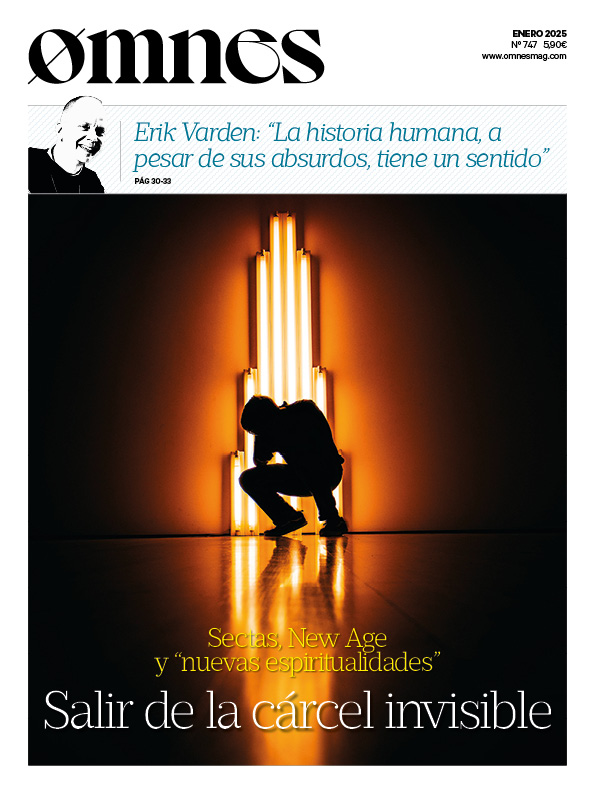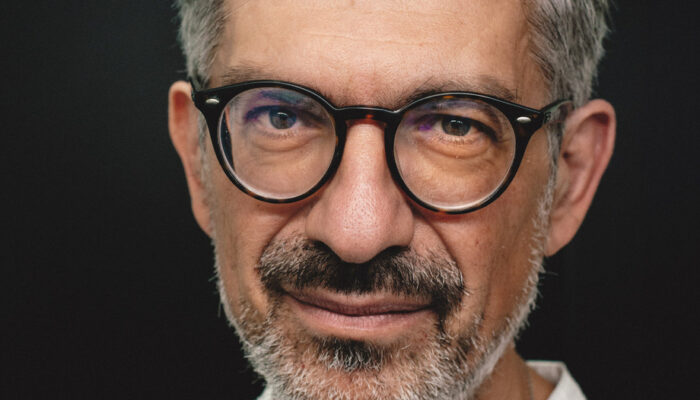Starting from the guidelines indicated by the theme Overcome indifference and conquer peaceIn the Message written for the occasion, Pope Francis invited all people of good will to reflect on the phenomenon of the "globalization of indifference"which is the cause of so many situations of violence and injustice. The whole Message is a sign of request so that the world finally can, at all levels, "realizing justice and working for peace.". This one, indeed, "is God's gift, but entrusted to all men and women, who are called to put it into practice".writes Francisco.
In spite of everything, however, the Pontiff's invitation is "not to lose hope in the capacity of man". to overcome evil and not to abandon ourselves to resignation and indifference. There are many reasons for believing in this capacity, starting with attitudes of shared responsibility in solidarity that are "at the root of the fundamental vocation to fraternity and common life.". Everyone, in fact, is in a position to understand that outside of these relationships we would end up being "less human" and that it is precisely indifference that represents "a threat to the human family".
Among the various forms of globalized indifference, the Pope places indifference in the first place. "before God, from which also springs indifference before others and before creation".which are effects "of a false humanism and practical materialism, combined with relativistic and nihilistic thinking.". It goes from not feeling affected by the dramas that afflict the brothers, because we are anesthetized by an information saturation that only allows us to vaguely know their problems, to the lack of "attention to the surrounding reality, especially the most distant".. Numerous times, the Pope denouncesSome people prefer not to search, not to be informed and live their wellbeing and comfort indifferent to the cry of pain of suffering humanity".thus becoming "incapable of compassion".
All this leads to "closed-mindedness and aloofness"and causes an absence of "of peace with God, with one's neighbor and with creation."at the same time, feeding at the same time "situations of injustice and serious social imbalance, which, in turn, can lead to conflicts or, in any case, generate a climate of dissatisfaction that runs the risk of ending, sooner or later, in violence and insecurity"..
As indicated in the Evangelii gaudiumno person should be exempted from the duty to contribute "to the extent of its capabilities and the role it plays in society.". Often, however, this indifference also affects the institutional spheres, with the implementation of policies that have "as an objective to conquer or maintain power and wealth, even at the cost of trampling on the fundamental rights and demands of others."
These trends can only be reversed through a true "green revolution".conversion of the heart", writes the Pope, "a heart that beats loudly wherever human dignity is at stake.".
Certainly, there is no lack of examples of praiseworthy commitment from non-governmental organizations and charitable groups, even non-ecclesial ones, associations that help migrants, operators who report on difficult situations, people who are committed to the human rights of minorities, priests and missionaries, families that educate in healthy values and welcome those in need, many young people who are engaged in solidarity projects... all of them, Francis writes, are demonstrations of how each one can "to overcome indifference if he does not look away from his neighbor, and that they constitute good practices on the road to a more humane society"..
The Jubilee of Mercy represents a wonderful opportunity to decide to contribute to improving the reality in which we live, starting with the States, to whom the Pope in his Message expressly asks "concrete gestures" y "acts of courage" towards the most vulnerable members of society, including detainees (abolition of the death penalty and amnesty), migrants (reception and integration), the unemployed, etc. ("work, land and shelter")) and the sick (access to medical care).
The Message of Peace concludes with a threefold appeal to States to refrain from implicating "other peoples to conflicts or wars"The aim is to encourage them to work towards the cancellation of the international debt of the poorest countries, to adopt cooperation policies that respect the values of local populations and to safeguard the rights of the poorest countries. "the fundamental and inalienable right of unborn children"..
Closing of the Year of Consecrated Life
From January 28 to February 2 will be the final week of the Year of Consecrated Life, and about 6,000 consecrated people from all over the world will gather in Rome. Among the first community meetings, on the evening of January 28 there will be a prayer vigil in St. Peter's Basilica, while on February 1 there will be an audience with Pope Francis in the Paul VI Hall, with a debate on the theme of the Year of Consecrated Life. Consecrated today in the Church and in the world, provoked by the Gospel. On the last day of the week, February 2, the Solemnity of the Presentation of the Lord, consecrated men and women will experience their Jubilee of Mercy with a pilgrimage to the Basilicas of St. Paul Outside the Walls and St. Mary Major, and in the afternoon they will participate in the Holy Mass celebrated by the Holy Father in St. Peter's Basilica to close the Year of Consecrated Life.
Meanwhile, in recent weeks, the Congregation for Institutes of Consecrated Life and Societies of Apostolic Life has released a new document dedicated to the "Identity and mission of the religious brother in the Church."The book, centered precisely on this particular vocation to the lay religious life of men and women. As Cardinal Joao Braz de Aviz, Prefect of the Congregation, explained, the vocation of the religious brother expresses itself completely in his way of life. "the trait of the person of Christ". linked precisely to the "fraternity". "The religious brother reflects the face of Christ-Brother, simple, good, close to the people, welcoming, generous, servant..." he added. At present, religious brothers make up approximately one-fifth of the total number of male religious.
Causes of saints
In the last month, the Congregation for the Causes of Saints has been authorized by the Pope to promulgate numerous decrees concerning both miracles and heroic virtues.
The most significant was undoubtedly the approval of the miracle attributed to the intercession of Mother Teresa of Calcutta, beatified by St. John Paul II in 2003, who will be canonized during this Jubilee of Mercy. Also approved were the decrees concerning the miracles attributed to the intercession of Blessed Mary Elizabeth Hesselblad, Swedish, foundress of the Order of the Most Holy Savior of St. Bridget; of the Servant of God Ladislav Bukowinski, Ukrainian diocesan priest, who died in Kazakhstan in 1974; and of the Servants of God Maria Celeste Crostarosa, Neapolitan foundress of the Sisters of the Most Holy Redeemer, who died in 1755; Maria de Jesus (Carolina Santocanale), Italian, foundress of the Congregation of the Capuchin Sisters of the Immaculate of Lourdes; Itala Mela, Benedictine Oblate of the Monastery of St. Paul in Rome, who died in 1957.
The Holy Father also authorized the promulgation of decrees on the heroic virtues of the Servants of God Angelo Ramazzotti, who was Patriarch of Venice and died in 1861; Joseph Vithayathil, who founded the Congregation of the Sisters of the Holy Family in India; Jose Maria Arizmendiarrieta, a diocesan priest born in Markina, Spain; Giovanni Schiavo, professed priest of the Congregation of St. Joseph, who died in Brazil in 1967; Venanzio Maria Quadri, professed religious of the Order of the Servants of Mary; William Gagnon, professed religious of the Hospitaller Order of St. John of God, who died in Vietnam in 1972; Nikolaus Wolf, layman and father of a family; Tereso Olivelli, layman who died in 1945 in the concentration camp of Hersbruck (Germany); Giuseppe Ambrosoli, of the Comboni Missionaries of the Heart of Jesus; Leonardo Lanzuela Martinez, of the Institute of the Brothers of the Christian Schools; Heinrich Hahn, layman who died in 1882; and the Servants of God Teresa Rosa Fernanda de Saldanha Oliveira e Sousa, who founded the Congregation of the Dominican Sisters of St. Catherine of Siena, who died in 1916; Maria Emilia Riquelme Zayas, also Spanish, foundress of the Institute of the Missionary Sisters of the Blessed Sacrament and of the Blessed Virgin Mary Immaculate; Maria Esperanza de la Cruz, born in Monteagudo (Spain) and co-foundress of the Augustinian Recollect Missionary Sisters; Emanuela Maria Kalb, professed sister of the Congregation of the Canonical Sisters of the Holy Spirit of Saxia, died in Krakow in 1986.








